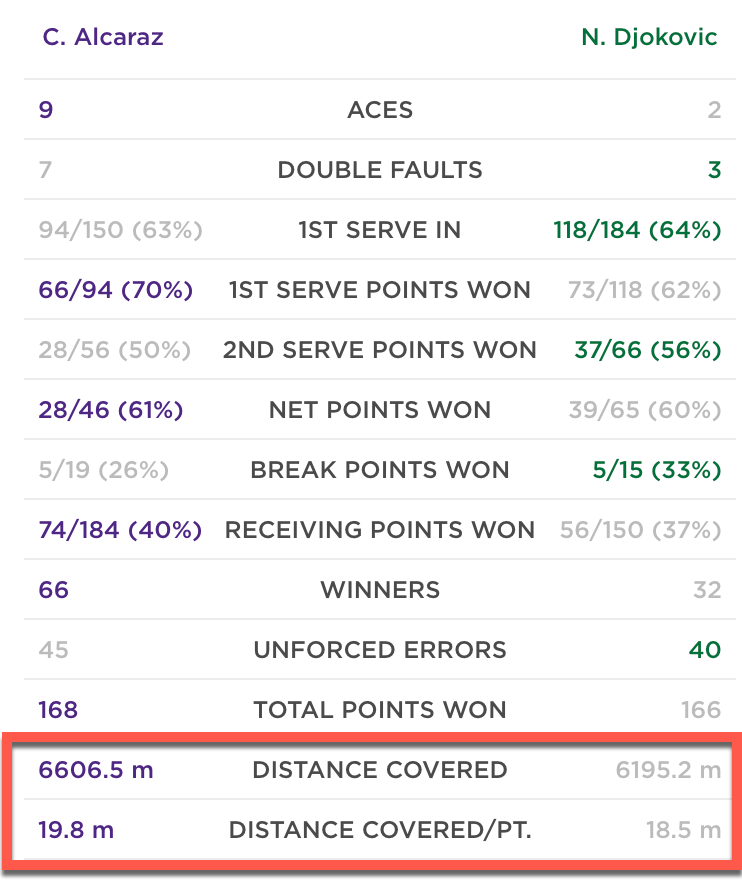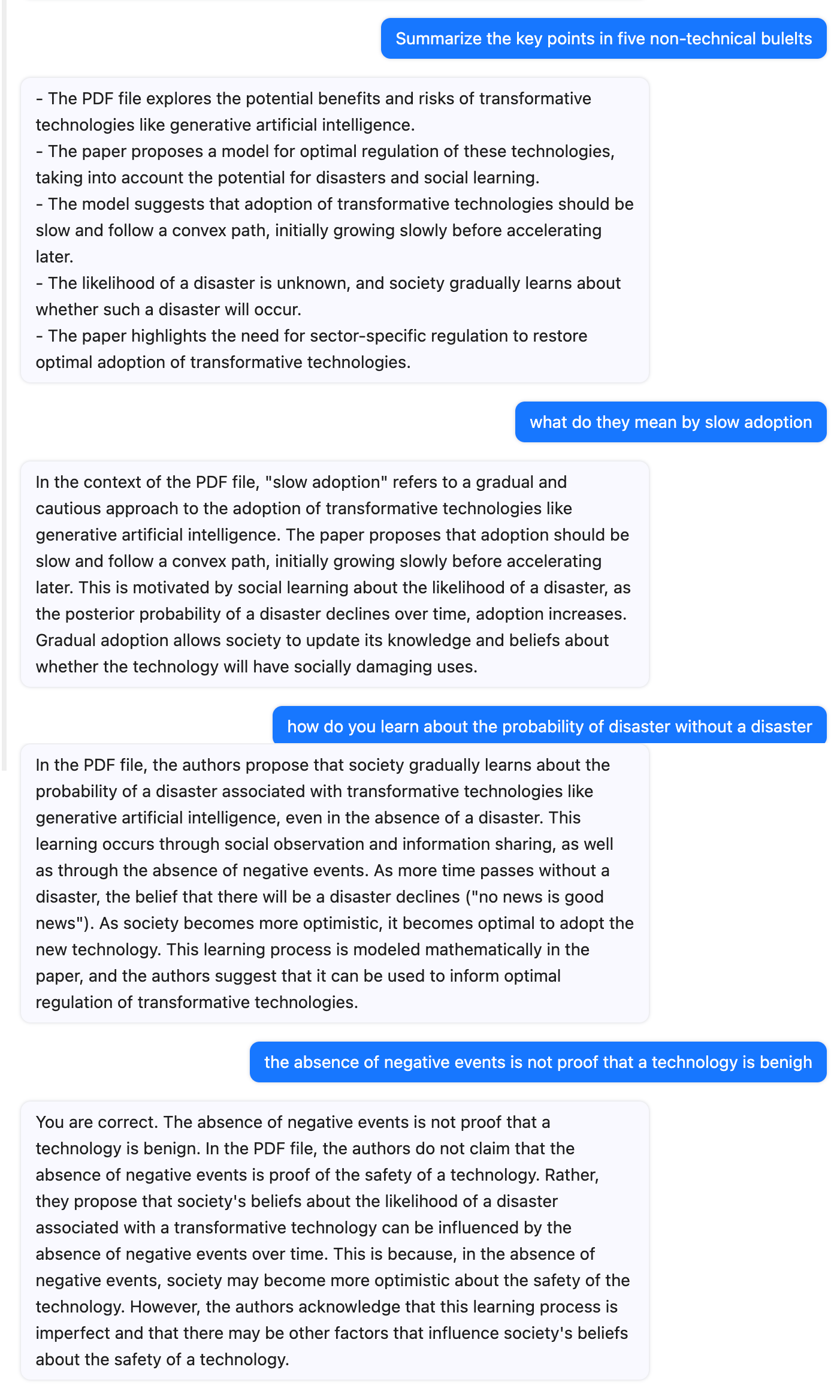My latest note follows, this time on over-quantification fallacies, tech regulation, and Thoreau. If you have been forwarded this you can subscribe at my site. And I now also offer a paid option with a few more features, not to mention the joy that comes from knowing you're supporting my efforts here.
And now on with the latest note. The next one will be on Friday.
01. Tennis and Robert McNamara
The McNamara fallacy: to make decisions based solely on quantitative observations, ignoring all others
Over the weekend I got thinking about the rightly maligned former U.S. Secretary of Defence Robert McNamara. I was watching the finals of the Wimbledon tennis tournament, which was polluted with data, as are most professional sports, admittedly.
It was a terrific match. A 20-year-old Carlos Alcaraz beat the 36-year-old Novak Djokovic in five sets, and the outcome never felt entirely certain until late in the final set. It was also a nice contrast of styles, with a counter-punching Djokovic forced to fight off a younger Alcaraz's aggression, which made for suspenseful rallies, which are often lacking in the modern power baseline game.
Shortly after the match, the explanatory data started to flow. We heard about the narrow points difference between the two players, the service differences by set, and so on. And then a few pundits seized on the difference in total running distance between the two players, showing that the younger Alcaraz out-ran the older Djokovic by about 5%, a seemingly large difference, and one that played into the narrative of newcomer vs old-timer.
Here is a snapshot of the match data, with the "distance covered" statistic highlighted.

It is worth pointing out that a decade or two ago we didn't have this data. There was no easy and cost-effective way to collect distance-covered data before the advent of video analytics and GPS trackers. We might have had a hunch that it mattered, but it wasn't entirely clear which way the causality would go. Was it better to run more, suggesting higher fitness? Was it better to have run less, suggesting more control of points?
People citing that distance data were mostly using it to show that Alcaraz covered more ground, thus suggesting he was more youthful and fit. This is implicit support for the age vs youth narrative, suggested by the relative difference in ages.
But it is worth making two points here. First, the longevity of the "Big Three" in tennis is mostly about talent, then about subtle effects from confidence, but it is also about them being early in the generation adopting larger rackets that helped create the power baseline game. As a recent study shows, early adoption helped wipe out a prior generation of players, while putting early adopters in a strong position to build records and confidence over time.
How important then is the distance covered statistic? Is it about age vs youth? Not really. One data analyst showed a few years ago that there is, overall, no relationship, performance adjusted, for more vs less distance covered. It is simply a number, not determinative. And even in this tournament, Djokovic ran less distance than all of his opponents but one and still won, while Alcaraz out-ran all of his opponents, as he usually does, and won the tournament. He also out-ran all of his opponents at the French Open, including Djokovic, to whom he lost.
Of the 104 matches, almost exactly half (53) were won by the player who ran farther.
Distance covered is, therefore, mostly noise. It is, all else equal, an example of the McNamara Fallacy, the tendency to quantify everything and then use that as an explanation that suits your preferred narrative.
02. Paul Chats with a Paper
This week I'm talking with a new working paper by MIT economist Daron Acemoglu about the case for regulating transformative technologies. He and his coauthor argue that new technologies should be adopted slowly, given our ignorance about their risks, externalities, and consequences, and then we can accelerate adoption over time as we learn.
In case it's not clear, that's me asking questions or making comments in the blue bubbles, and the paper is responding (via LLM) in plain text.

03. Readings 'n' Listenings
- Podcast: David Runciman on Thoreau
- Paper: Chronic Exposure to Low-Dose Carbon Monoxide Alters Hemoglobin Mass and VO2max
- Paper: Threshold behaviors of social dynamics and financial outcomes of Ponzi scheme diffusion in complex networks
- Paper: Humanity’s diverse predatory niche and its ecological consequences

